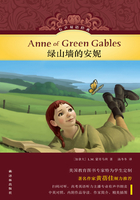"Indeed,"answered Elinor,"I have not forgotten it."He looked pleased by this remembrance and added, "If I am not deceived by the uncertainty, the partiality of tender recollection, there is a very strong resemblance between them as well in mind as person— the same warmth of heart, the same eagerness of fancy and spirits. This lady was one of my nearest relations, an orphan from her infancy, and under the guardianship of my father. Our ages were nearly the same, and from our earliest years we were playfellows and friends. I cannot remember the time when I did not love Eliza; and my affection for her as we grew up was such, as perhaps, judging from my present forlorn and cheerless gravity, you might think me incapable of having ever felt. Hers, for me, was, I believe, fervent as the attachment of your sister to Mr.Willoughby; and it was, though from a different cause, no less unfortunate. At seventeen she was lost to me forever. She was married—married against her inclination to my brother. Her fortune was large, and our family estate much encumbered. And this, I fear, is all that can be said for the conduct of one who was at once her uncle and guardian. My brother did not deserve her; he did not even love her. I had hoped that her regard for me would support her under any difficulty, and for some time it did; but at last the misery of her situation, for she experienced great unkindness, overcame all her resolution, and though she had promised me that nothing—but how blindly I relate? I have never told you how this was brought on. We were within a few hours of eloping together for Scotland. The treachery, or the folly, of my cousin's maid betrayed us. I was banished to the house of a relation far distant, and she was allowed no liberty, no society, no amusement, till my father's point was gained. I had depended on her fortitude too far, and the blow was a severe one; but had her marriage been happy, so young as I then was, a few months must have reconciled me to it, or at least I should not have now to lament it. This, however, was not the case. My brother had no regard for her; his pleasures were not what they ought to have been, and from the first he treated her unkindly. The consequence of this upon a mind so young, so lively, so inexperienced as Mrs. Brandon's, was but too natural. She resigned herself at first to all the misery of her situation; and happy had it been if she had not lived to overcome those regrets which the remembrance of me occasioned. But can we wonder that with such a husband to provoke inconstancy, and without a friend to advise or restrain her(for my father lived only a few months after their marriage, and I was with my regiment in the East Indies), she should fall? Had I remained in England, perhaps—but I meant to promote the happiness of both by removing from her for years, and for that purpose had procured my exchange. The shock which her marriage had given me," he continued in a voice of great agitation, "was of trifling weight—was nothing—to what I felt when I heard, about two years afterwards,of her divorce.It was that which threw this gloom—even now the recollection of what I suffered—"
He could say no more, and rising hastily walked for a few minutes about the room. Elinor, affected by his relation and still more by his distress, could not speak. He saw her concern, and coming to her, took her hand, pressed it, and kissed it with grateful respect. A few minutes more of silent exertion enabled him to proceed with composure.
"It was nearly three years after this unhappy period before I returned to England.My first care when I did arrive was of course to seek for her; but the search was as fruitless as it was melancholy. I could not trace her beyond her first seducer, and there was every reason to fear that she had removed from him only to sink deeper in a life of sin. Her legal allowance was not adequate to her fortune nor sufficient for her comfortable maintenance, and I learned from my brother that the power of receiving it had been made over some months before to another person. He imagined, and calmly could he imagine it, that her extravagance and consequent distress had obliged her to dispose of it for some immediate relief.At last,however,and after I had been six months in England,I did find her. Regard for a former servant of my own who had since fallen into misfortune, carried me to visit him in a sponging-house, where he was confined for debt; and there, in the same house, under a similar confinement, was my unfortunate sister. So altered—so faded—worn down by acute suffering of every kind! Hardly could I believe the melancholy and sickly figure before me to be the remains of the lovely, blooming, healthful girl on whom I had once doted. What I endured in so beholding her—but I have no right to wound your feelings by attempting to describe it—I have pained you too much already. That she was, to all appearance in the last stage of a consumption, was—yes, in such a situation it was my greatest comfort. Life could do nothing for her beyond giving time for a better preparation for death; and that was given. I saw her placed in comfortable lodgings and under proper attendants; I visited her every day during the rest of her short life; I was with her in her last moments."
Again he stopped to recover himself; and Elinor spoke her feelings in an exclamation of tender concern at the fate of his unfortunate friend.
"Your sister, I hope, cannot be offended," said he, "by the resemblance I have fancied between her and my poor disgraced relation. Their fates, their fortunes, cannot be the same; and had the natural sweet disposition of the one been guarded by a firmer mind or a happier marriage, she might have been all that you will live to see the other be. But to what does all this lead? I seem to have been distressing you for nothing. Ah! Miss Dashwood—a subject such as this—untouched for fourteen years—it is dangerous to handle it at all!I will be more collected, more concise. She left to my care her only child, a little girl, the offspring of her first guilty connection, who was then about three years old. She loved the child and had always kept it with her. It was a valued, a precious trust to me; and gladly would I have discharged it in the strictest sense, by watching over her education myself, had the nature of our situations allowed it; but I had no family, no home; and my little Eliza was therefore placed at school. I saw her there whenever I could, and after the death of my brother (which happened about five years ago, and which left to me the possession of the family property), she frequently visited me at Delaford. I called her a distant relation, but I am well aware that I have in general been suspected of a much nearer connection with her. It is now three years ago (she had just reached her fourteenth year) that I removed her from school to place her under the care of a very respectable woman residing in Dorsetshire, who had the charge of four or five other girls of about the same time of life; and for two years I had every reason to be pleased with her situation. But last February, almost a twelvemonth back, she suddenly disappeared. I had allowed her (imprudently, as it has since turned out), at her earnest desire, to go to Bath with one of her young friends, who was attending her father there for his health. I knew him to be a very good sort of man, and I thought well of his daughter—better than she deserved, for with a most obstinate and ill-judged secrecy she would tell nothing, would give no clue, though she certainly knew all. He, her father, a well-meaning but not a quick-sighted man, could really, I believe, give no information;for he had been generally confined to the house while the girls were ranging over the town and making what acquaintance they chose; and he tried to convince me, as thoroughly as he was convinced himself, of his daughter's being entirely unconcerned in the business. In short, I could learn nothing but that she was gone; all the rest, for eight long months, was left to conjecture. What I thought, what I feared, may be imagined;and what I suffered, too."
"Good heavens!" cried Elinor, "could it be—could Willoughby—"
"The first news that reached me of her," he continued, "came in a letter from herself last October. It was forwarded to me from Delaford, and I received it on the very morning of our intended party to Whitwell;and this was the reason of my leaving Barton so suddenly, which I am sure must at the time have appeared strange to everybody, and which I believe gave offence to some. Little did Mr. Willoughby imagine, I suppose, when his looks censured me for incivility in breaking up the party, that I was called away to the relief of one whom he had made poor and miserable;but had he known it,what would it have availed?Would he have been less gay or less happy in the smiles of your sister? No, he had already done that which no man who can feel for another would do. He had left the girl whose youth and innocence he had seduced in a situation of the utmost distress, with no creditable home, no help, no friends, ignorant of his address! He had left her promising to return; he neither returned, nor wrote, nor relieved her."
"This is beyond everything!" exclaimed Elinor.
"His character is now before you—expensive, dissipated, and worse than both. Knowing all this as I have now known it many weeks, guess what I must have felt on seeing your sister as fond of him as ever, and on being assured that she was to marry him, guess what I must have felt for all your sakes. When I came to you last week and found you alone, I came determined to know the truth; though irresolute what to do when it was known.My behaviour must have seemed strange to you then;but now you will comprehend it. To suffer you all to be so deceived;to see your sister—but what could I do? I had no hope of interfering with success; and sometimes I thought your sister's influence might yet reclaim him. But now, after such dishonourable usage, who can tell what were his designs on her? Whatever they may have been, however, she may now,and hereafter doubtless will,turn with gratitude towards her own condition, when she compares it with that of my poor Eliza, when she considers the wretched and hopeless situation of this poor girl and pictures her to herself, with an affection for him as strong, still as strong as her own, and with a mind tormented by self-reproach which must attend her through life. Surely this comparison must have its use with her. She will feel her own sufferings to be nothing. They proceed from no misconduct and can bring no disgrace. On the contrary, every friend must be made still more her friend by them. Concern for her unhappiness and respect for her fortitude under it must strengthen every attachment. Use your own discretion, however, in communicating to her what I have told you. You must know best what will be its effect; but had I not seriously and from my heart believed it might be of service, might lessen her regrets, I would not have suffered myself to trouble you with this account of my family afflictions, with a recital which may seem to have been intended to raise myself at the expense of others."
Elinor's thanks followed this speech with grateful earnestness;attended, too, with the assurance of her expecting material advantage to Marianne from the communication of what had passed.
"I have been more pained," said she, "by her endeavours to acquit him than by all the rest; for it irritates her mind more than the most perfect conviction of his unworthiness can do. Now, though at first she will suffer much, I am sure she will soon become easier. Have you," she continued after a short silence, "ever seen Mr. Willoughby since you left him at Barton?"
"Yes," he replied gravely, "once I have. One meeting was unavoidable."
Elinor, startled by his manner, looked at him anxiously, saying:
"What? Have you met him to—"
"I could meet him in no other way. Eliza had confessed to me, though most reluctantly, the name of her lover; and when he returned to town, which was within a fortnight after myself, we met by appointment, he to defend, I to punish his conduct. We returned unwounded, and the meeting, therefore, never got abroad."
Elinor sighed over the fancied necessity of this; but to a man and a soldier she presumed not to censure it.
"Such," said Colonel Brandon after a pause, "has been the unhappy resemblance between the fate of mother and daughter! And so imperfectly have I discharged my trust!"
"Is she still in town?"
"No, as soon as she recovered from her lying-in, for I found her near her delivery, I removed her and her child into the country, and there she remains."
Recollecting, soon afterwards, that he was probably dividing Elinor from her sister, he put an end to his visit, receiving from her again the same grateful acknowledgments, and leaving her full of compassion and esteem for him.
Chapter 10
WHEN THE PARTICULARS of this conversation were repeated by Miss Dashwood to her sister, as they very soon were, the effect on her was not entirely such as the former had hoped to see. Not that Marianne appeared to distrust the truth of any part of it, for she listened to it all with the most steady and submissive attention, made neither objection nor remark, attempted no vindication of Willoughby, and seemed to show by her tears that she felt it to be impossible. But though this behaviour assured Elinor that the conviction of his guilt was carried home to her mind, though she saw with satisfaction the effect of it in her no longer avoiding Colonel Brandon when he called, in her speaking to him, even voluntarily speaking, with a kind of compassionate respect, and though she saw her spirits less violently irritated than before, she did not see her less wretched. Her mind did become settled, but it was settled in a gloomy dejection. She felt the loss of Willoughby's character yet more heavily than she had felt the loss of his heart; his seduction and desertion of Miss Williams, the misery of that poor girl, and the doubt of what his designs might once have been on herself,preyed altogether so much on her spirits that she could not bring herself to speak of what she felt even to Elinor; and brooding over her sorrows in silence gave more pain to her sister than could have been communicated by the most open and most frequent confession of them.
To give the feelings or the language of Mrs. Dashwood on receiving and answering Elinor's letter would be only to give a repetition of what her daughters had already felt and said; of a disappointment hardly less painful than Marianne's, and an indignation even greater than Elinor's. Long letters from her, quickly succeeding each other, arrived to tell all that she suffered and thought; to express her anxious solicitude for Marianne, and entreat she would bear up with fortitude under this misfortune. Bad indeed must the nature of Marianne's affliction be when her mother could talk of fortitude! Mortifying and humiliating must be the origin of those regrets which she could wish her not to indulge!
Against the interest of her own individual comfort, Mrs. Dashwood had determined that it would be better for Marianne to be anywhere at that time than at Barton, where everything within her view would be bringing back the past in the strongest and most afflicting manner by constantly placing Willoughby before her such as she had always seen him there. She recommended it to her daughters, therefore, by all means not to shorten their visit to Mrs. Jennings; the length of which, though never exactly fixed, had been expected by all to comprise at least five or six weeks. A variety of occupations, of objects, and of company, which could not be procured at Barton, would be inevitable there, and might yet, she hoped, cheat Marianne at times into some interest beyond herself, and even into some amusement, much as the idea of both might now be spurned by her.
From all danger of seeing Willoughby again, her mother considered her to be at least equally safe in town as in the country, since his acquaintance must now be dropped by all who called themselves her friends. Design could never bring them in each other's way; negligence could never leave them exposed to a surprise; and chance had less in its favour in the crowd of London than even in the retirement of Barton, where it might force him before her while paying that visit at Allenham on his marriage, which Mrs. Dashwood, from foreseeing at first as a probable event, had brought herself to expect as a certain one.
She had yet another reason for wishing her children to remain where they were; a letter from her son-in-law had told her that he and his wife were to be in town before the middle of February, and she judged it right that they should sometimes see their brother.
Marianne had promised to be guided by her mother's opinion, and she submitted to it, therefore, without opposition, though it proved perfectly different from what she wished and expected, though she felt it to be entirely wrong, formed on mistaken grounds, and that by requiring her longer continuance in London it deprived her of the only possible alleviation of her wretchedness, the personal sympathy of her mother, and doomed her to such society and such scenes as must prevent her ever knowing a moment's rest.
But it was a matter of great consolation to her that what brought evil to herself would bring good to her sister; and Elinor, on the other hand, suspecting that it would not be in her power to avoid Edward entirely, comforted herself by thinking that though their longer stay would therefore militate against her own happiness, it would be better for Marianne than an immediate return into Devonshire.
Her carefulness in guarding her sister from ever hearing Willoughby's name mentioned was not thrown away. Marianne, though without knowing it herself, reaped all its advantage; for neither Mrs. Jennings nor Sir John, nor even Mrs. Palmer herself, ever spoke of him before her. Elinor wished that the same forbearance could have extended towards herself, but that was impossible, and she was obliged to listen day after day to the indignation of them all.
Sir John could not have thought it possible. "A man of whom he had always had such reason to think well! Such a good-natured fellow! He did not believe there was a bolder rider in England! It was an unaccountable business. He wished him at the devil with all his heart. He would not speak another word to him, meet him where he might, for all the world! No, not if it were to be by the side of Barton covert, and they were kept waiting for two hours together. Such a scoundrel of a fellow! Such a deceitful dog! It was only the last time they met that he had offered him one of Folly's puppies! And this was the end of it!"
Mrs. Palmer, in her way, was equally angry. "She was determined to drop his acquaintance immediately, and she was very thankful that she had never been acquainted with him at all. She wished with all her heart Combe Magna was not so near Cleveland; but it did not signify, for it was a great deal too far off to visit; she hated him so much that she was resolved never to mention his name again, and she should tell everybody she saw how good-for-nothing he was."
The rest of Mrs. Palmer's sympathy was shown in procuring all the particulars in her power of the approaching marriage and communicating them to Elinor. She could soon tell at what coachmaker's the new carriage was building, by what painter Mr. Willoughby's portrait was drawn, and at what warehouse Miss Grey's clothes might be seen.
The calm and polite unconcern of Lady Middleton on the occasion was a happy relief to Elinor's spirits, oppressed as they often were by the clamorous kindness of the others. It was a great comfort to her to be sure of exciting no interest in one person at least among their circle of friends;a great comfort to know that there was one who would meet her without feeling any curiosity after particulars or any anxiety for her sister's health.
Every qualification is raised at times by the circumstances of the moment to more than its real value; and she was sometimes worried down by officious condolence to rate good breeding as more indispensable to comfort than good nature.
Lady Middleton expressed her sense of the affair about once every day, or twice if the subject occurred very often, by saying, "It is very shocking indeed!" and by the means of this continual though gentle vent was able not only to see the Miss Dashwoods from the first without the smallest emotion, but very soon to see them without recollecting a word of the matter; and having thus supported the dignity of her own sex and spoken her decided censure of what was wrong in the other, she thought herself at liberty to attend to the interest of her own assemblies and therefore determined (though rather against the opinion of Sir John) that as Mrs. Willoughby would at once be a woman of elegance and fortune, to leave her card with her as soon as she married.
Colonel Brandon's delicate, unobtrusive inquiries were never unwelcome to Miss Dashwood. He had abundantly earned the privilege of intimate discussion of her sister's disappointment by the friendly zeal with which he had endeavoured to soften it, and they always conversed with confidence. His chief reward for the painful exertion of disclosing past sorrows and present humiliations was given in the pitying eye with which Marianne sometimes observed him and the gentleness of her voice whenever (though it did not often happen) she was obliged, or could oblige herself,to speak to him.These assured him that his exertion had produced an increase of goodwill towards himself,and these gave Elinor hopes of its being further augmented hereafter; but Mrs. Jennings, who knew nothing of all this—who knew only that the Colonel continued as grave as ever, and that she could neither prevail on him to make the offer himself nor commission her to make it for him—began at the end of two days, to think that, instead of Midsummer, they would not be married till Michaelmas, and by the end of a week that it would not be a match at all. The good understanding between the Colonel and Miss Dashwood seemed rather to declare that the honours of the mulberry tree, the canal, and the yew arbour would all be made over to her;and Mrs.Jennings had for some time ceased to think at all of Mr. Ferrars.
Early in February, within a fortnight from the receipt of Willoughby's letter, Elinor had the painful office of informing her sister that he was married. She had taken care to have the intelligence conveyed to herself as soon as it was known that the ceremony was over, as she was desirous that Marianne should not receive the first notice of it from the public papers, which she saw her eagerly examining every morning.
She received the news with resolute composure, made no observation on it, and at first shed no tears; but after a short time they would burst out, and for the rest of the day, she was in a state hardly less pitiable than when she first learned to expect the event.
The Willoughbys left town as soon as they were married; and Elinor now hoped, as there could be no danger of her seeing either of them, to prevail on her sister, who had never yet left the house since the blow first fell, to go out again by degrees as she had done before.
About this time the two Miss Steeles, lately arrived at their cousin's house in Bartlett's Buildings, Holborn, presented themselves again before their more grand relations in Conduit and Berkeley Street, and were welcomed by them all with great cordiality.
Elinor only was sorry to see them. Their presence always gave her pain, and she hardly knew how to make a very gracious return to the overpowering delight of Lucy in finding her still in town.















